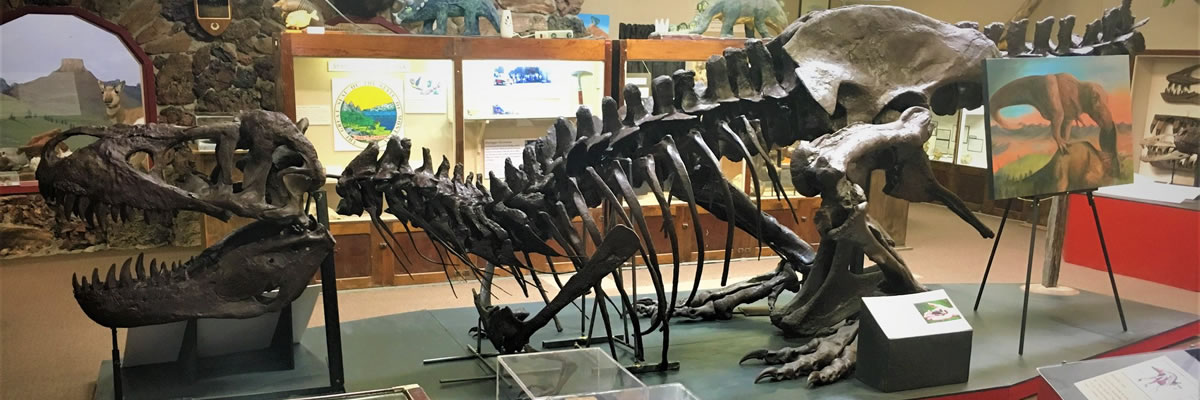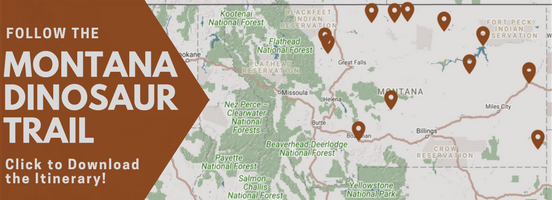306 N. Main St.
Ekalaka, MT 59324
406-775-6886
Website
The Carter County Museum is Montana’s first county museum and the first to display dinosaurs found in the state of Montana. Ekalaka has been at the epicenter of dinosaur discoveries for the past 100 years, and is continuing to be a source of scientific discovery. The Lambert Room, dedicated to paleontology displays, includes exhibits of a mounted Edmontosaurus annectens skeleton (one of only a few nearly complete skeletons of this species), as well as a complete Triceratops skull. In addition, the badlands in the area have produced pachycephalosaurs, plesiosaurs, ankylosaurs, pterosaurs (this is the only known specimen from the Hell Creek Formation), mosasaurs, and the most complete juvenile T. rex. The museum has mounts and casts of each of these species, along with other authentic dinosaur bones.
Did You Know?
The giant hadrosaur on display in the Carter County Museum is one of about five specimen found in the United States. This display, along with the two hadrosaurs housed at the American Museum of Natural History in New York City were found approximately 30 miles west of Ekalaka.
Where to Next on the Montana Dinosaur Trail?
Nearest to the North
Frontier Gateway Museum and Makoshika State Park
Glendive, 109 miles (1.75 hrs)
Take MT Hwy 7 north from Ekalaka to Wibaux, I-94 west from Wibaux to Glendive.
Nearest to the East
Upper Musselshell Museum
Harlowton, 330 miles (5.5 hrs)
MT Highway 7 north from Ekalaka to Baker, US Highway 12 east from Baker to Miles City, I-94 west from Miles City to Forsyth, US Highway 12 from Forsyth to Harlowton.
While You’re in the Area
Capitol Rock National Natural Landmark
This is a massive white limestone uplift that resembles the U.S. Capitol building, and sits 30 miles southeast of Ekalaka.
Custer National Forest
The Custer National Forest encompasses three million acres and features a diverse set of landscapes across Southeastern Montana.
Medicine Rocks State Park
Medicine Rocks State Park features sandstone formations that provides a unique and tranquil landscape. Visitors will find thousands of inscriptions in the rocks from the last 1,000 years. The site is listed on the National Register of Historic Places for 2017.


